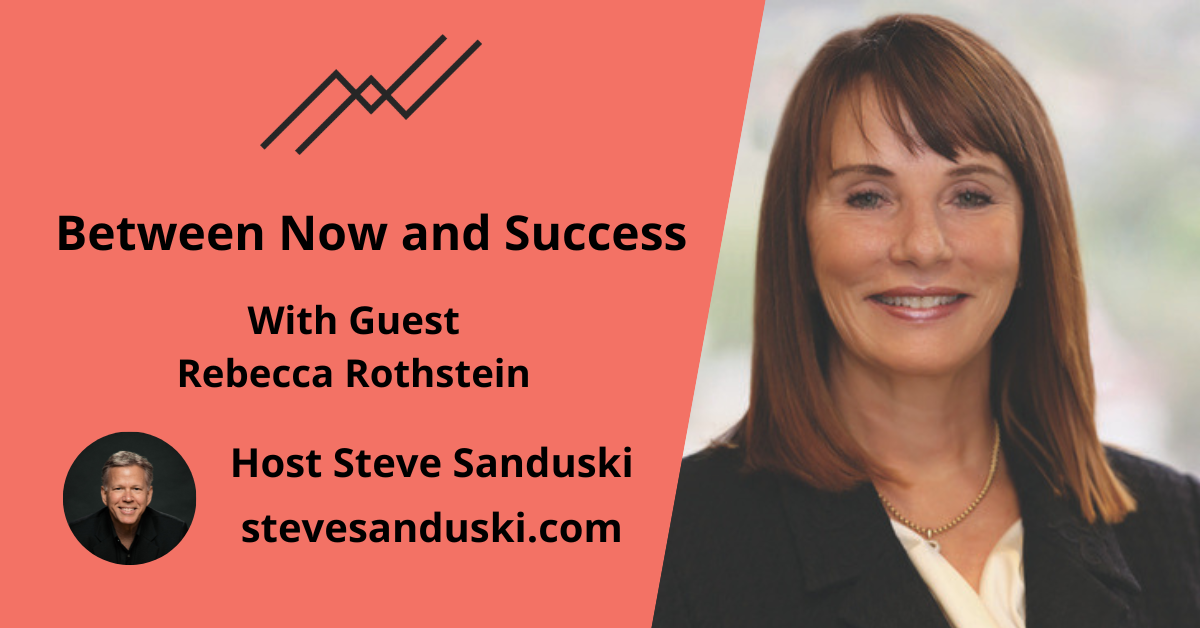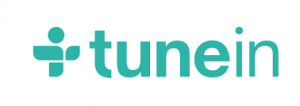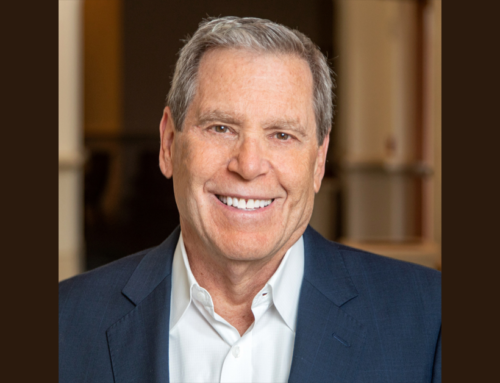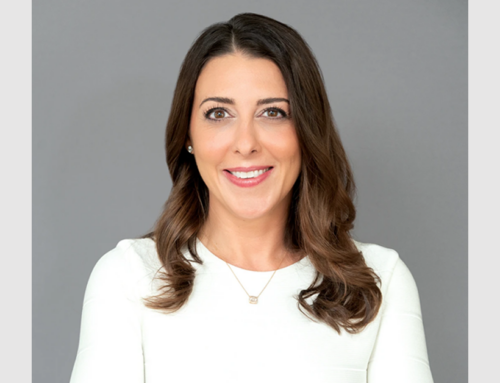What do you need to be a successful financial advisor?
An Ivy League degree in finance? A family practice that you can inherit? A group of wealthy connections that you can network? An “in” at one of the major firms?
Well, Rebecca Rothstein doesn’t check off any of those boxes, and she’s currently managing over $4.5 billion in AUM.
Without even a high school degree, Rebecca left home at age 17. She bounced through a series of odd jobs — including walking racehorses after they’d finished running — and by the late 1980s she was slogging through an unfulfilling sales position. She jumped to finance and earned her Series 7 just weeks before Black Monday. Anxious investors looking to take their portfolios in a new direction responded to Rebecca’s curiosity and tenacity, two traits that she credits with helping her build her business brick by brick, one phone call at a time.
Today, from her office in Beverly Hills, California, Rebecca’s client list includes celebrities, athletes, musicians, and top CEOs and entrepreneurs. Rebecca has appeared numerous times on Barron’s List of the top financial advisors, and according to Forbes, is currently the #1 woman advisor in the United States.
In our conversation, Rebecca Rothstein and I discussed how drive and perseverance helped her to overcome the obstacles she faced early in her life and build a multi-billion-dollar AUM business.
5 Key Insights from Rebecca Rothstein
1. Let your team do what it does best.
Early in her career, Rebecca Rothstein received an invaluable lesson in delegation that left a lasting impression on how she would grow her own business.
“My manager came into my office and watched me and my team for a while,” she remembers. “And he said, ‘If you keep growing at this rate, you’re never going to be able to be as successful as you could be. Let me suggest to you that you do it a different way.'”
The manager then helped Rebecca and her team map out who was responsible for what tasks. This revealed a great deal of cross-purpose effort and redundancy. Then, the manager had every team member explain which tasks they had the highest level of expertise in. “Before I knew it, he had created a family tree of who owned what,” Rebecca says, “and the team took to it like a duck to water. Everybody on the team was super happy because they owned the area of the business that fell under their job description. When I look back on my life now, that became the turning point in going from being somewhat successful to building a really significantly large business and doing it in an almost stress-free way. It was a game-changer for me.”
This style of management points to one way that I think the obsession in our industry with more and more tech is missing the point. Technology can certainly help us to grease the wheels, so to speak, but your business is never going to be as efficient as it could be without a clear division of labor that lets your top people do what they’re best at.
In a similar way, Ric Edelman told me how specialization allows his firm to be super efficient. “My advisors only do one thing. They advise. They aren’t spending any of their time on marketing. They’re not spending any of their time on operations or paperwork or trading or compliance or HR or IT. They’re not looking for office leases. They’re not doing any of the distracting things that punishes so many advisors.” For the full podcast with Ric Edelman, click here.
2. Keep the client at the center of the conversation.
“I’ve always instinctively known that it’s important that you remind yourself, and you remind the client, that you’re aware of the fact that it’s their money, and their life, and their family and not mine,” Rebecca says. It’s amazing that so many advisors still don’t see that these are the kinds of conversations that clients WANT to have. Clients want to feel like they’re getting something from an advisor that they can’t from an app or a robo platform — especially the high-net-worth set with whom Rebecca works.
“My responsibility to them is to make sure that what they’re telling me is something that we repeat back to them and say, ‘I understand that what you were saying to me is the following and that you want us to solve and manage towards that goal,'” Rebecca says. “That way, we have a complete and clear understanding of the client’s ambitions and desires for their present and for their long-time future planning. That’s something that we use in every meeting that we have with that client from the time they become our client. We update them as to where we are presently. We update them as to where we’re going based upon their outline that they gave us. Then we talk about whether or not their future goals have changed.”
3. Be indispensable throughout your client’s life.
Having these kinds of conversations, especially during the discovery process, creates a strong foundation for a relationship that can become indispensable to clients. Many of the high-profile people with whom Rebecca works lead lives that are unpredictable. It’s Rebecca’s job to be ready for the next zig or zag. And that includes having good relationships with spouses and children who will eventually play key roles in executing some hefty legacies.
“This is an evolving relationship,” Rebecca says. “People move in to different times in their lives. They have children. They get married. They get divorced. They’re having business troubles. Any really good advisor knows to listen to what their clients have to say, but they also know to ask their client what’s going on with them. Check in. ‘What’s happening? How did that go? How’s your business? How are your children doing?’ It’s not just about whether or not you’re making them money, it’s about the global relationship they have to their money and how it allows them to live a life they want to live.”
Rebecca’s team integrates itself so fully into clients’ lives that she expects to be the “first call” when a client is going through a major life and or financial event. Can you say the same about your clients? Are you that valuable, that indispensable?
Creating that kind of stickiness starts with being curious about your clients as people, not just as numbers on the page.
4. Cultivate tenacious curiosity.
And really, what excuse do advisors have not to be curious these days?
“We used to walk around with stock guides to look up symbols on Fox,” remembers Rebecca. “Now, every second of every day, new information is coming, so you have to have the desire really to continue to learn, and to never take it for granted, and always be curious about what’s going, and why is this going on, and what’s the impact of that?”
Rebecca Rothstein credits her curiosity with helping her to round out the education that her tumultuous childhood didn’t allow her to complete. Whatever she didn’t learn before she left school, she taught herself through reading and through the variety of jobs she held.
“I love to read,” she says. “I’m a junkie for information and I have absorbed as much as I can and absorb more all the time. I’ve had people along the way that have taught me the things that I don’t know. When you work for a firm that’s a large firm, there’s so much opportunity to have more information and to find solutions for clients because they teach you and they provide for you. It’s like an ongoing college class.”
“Junkie” sounds like a strong word, but it also points to the second personality trait that Rebecca thinks was so important to starting her own successful business.
“I am so tenacious that it’s just shocking. It’s shocking to me. My tenacity is just I will not give up, I will not let go, I just won’t do it and I will keep pushing, and pushing, and pushing. Tenacity and curiosity altogether have allowed me to be fairly egoless, extremely competitive, and really, I picked the right business to be in. I was good at it and I understood it. I understood how to take care of clients.”
5. Create a business you can be passionate about.
Of course, plenty of folks would ease up on the curiosity and tenacity after they’d hit that first billion in AUM. What keeps the fire burning once you’ve hit $4.5 billion?
First, Rebecca Rothstein knows her client niche. She is the founder and lead partner of a three-partner firm. “Pretty much anybody that gets referred to me can fit into one of the three-partnership relationships as far as what the goals, and ambitions, and size of that account may be.”
“One of the things that I learned early in my career is you cannot be everything to everybody and therefore, you cannot take on an unlimited number of clients,” Rebecca says. “There’s no time and space for it if you want to be in the top of the industry.”
And second, perhaps as a happy consequence of having so many wealthy and famous people in her in her client roster, Rebecca’s job is never boring.
“I talk to some of the most interesting people that are walking on the planet today,” she says. “Where else am I going to do that? Where else am I going to meet those kind of people? It’s so interesting, the people that we talk to on a regular basis and watching what they’re doing is fantastically fascinating. I love that and as long as I’m curious and I enjoy meeting new people and talking to them, that’s as long as I’ll do this. When I lose the desire to do that, then there won’t be any reason for me to do it anymore.”
While we can’t all work with celebrities and entertainers like Rebecca Rothstein, we can identify people who will benefit from our unique perspectives on how money and life intersect. Curiosity will help us connect with those people. Tenacity and passion will help us find more of them and create bigger and better businesses.
Resources
– RVR Group Connect with Rebecca Rothstein and her team.
– Teen Cancer America Join Rebecca Rothstein and Roger Daltrey in their fight against cancer.
– “Say it Forward” Rebecca Rothstein’s podcast “goes inside the real life stories of fascinating people at the vanguard of art, music, business, pop culture, TV, film, fashion and more.” Definitely check out her conversation with Roger Daltrey.
– “The Fountainhead” by Ayn Rand
– “The Alexandria Quartet” by Lawrence Durrell Rebecca Rothstein says that reading Rand and Durrell taught her the importance of “being open to listening to other people’s points of view.”
– The ROL Index A tool Mitch Anthony and I developed to help advisors measure their clients’ well-being in 10 aspects of life.
– Values Clarification Toolkit Click here to download this FREE tool and start living your values.









